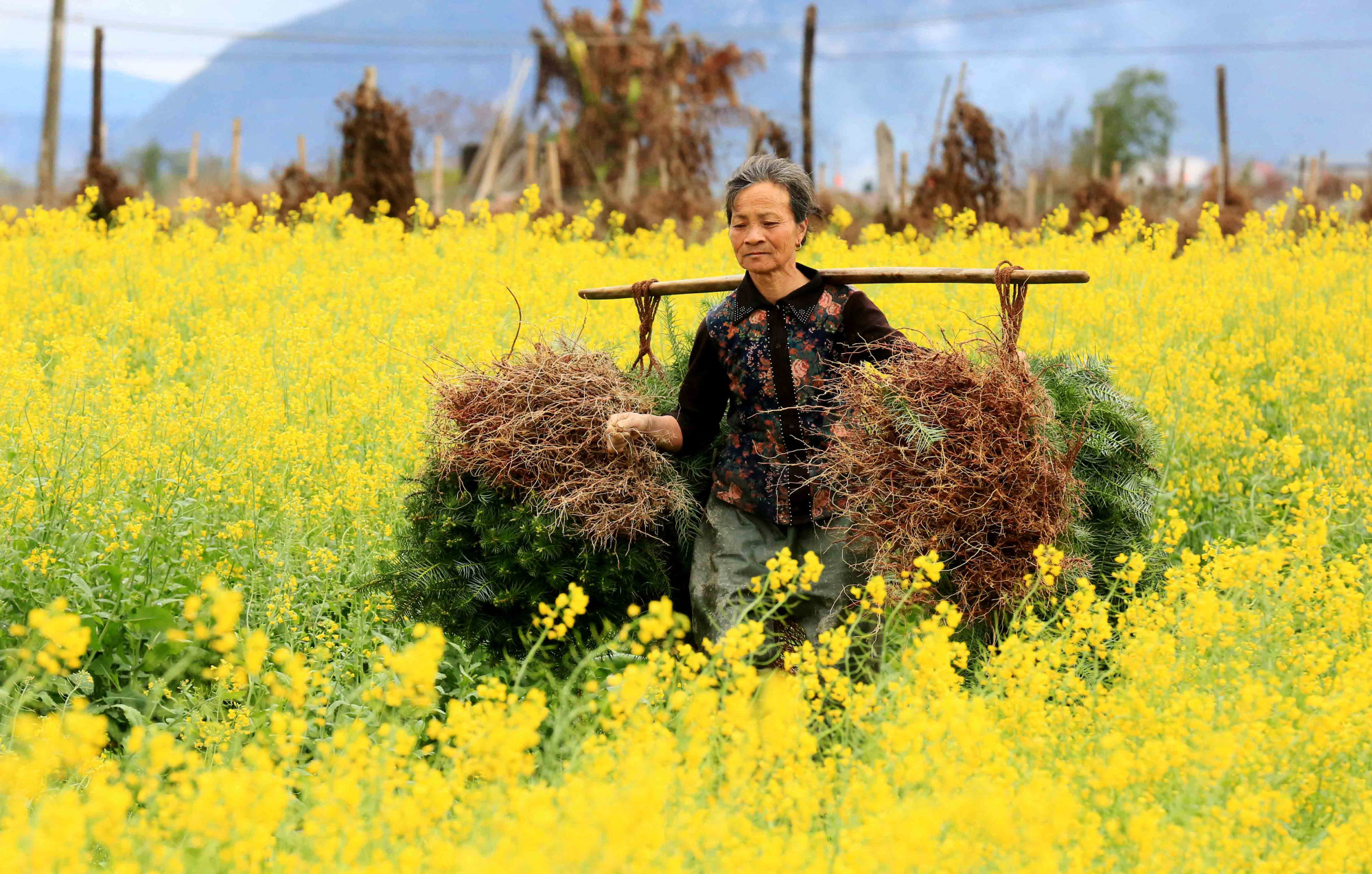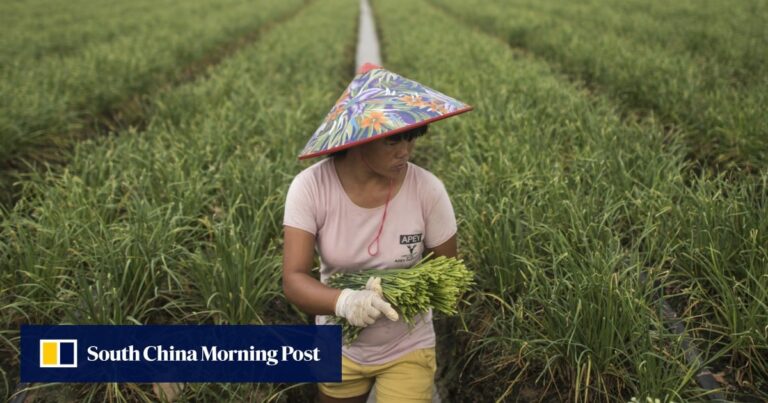It will come into effect in May.
But while experts are pleased that the new law will help clarify women’s rights and make it easier for them to access legal aid, they also express concern that it leaves ambiguities open that could lead to manipulation by local authorities.
Under the 1984 household registration system, land is registered in the name of the head of the household (usually a man) and women cannot own or inherit land.
When a woman “marries” into another village, she takes her household register (hukou) with her, not only losing her family’s registered land allotment but also excluding her from future land allotments in her home village. However, having missed out on a land allotment in her husband’s village, she runs the risk of not being recognized as a new member of the group.
Although current law clearly provides that women’s rights to land are equal to men’s and should not be infringed by marriage or divorce, male-dominated village assemblies, which tend to operate along traditional lines and as autonomous bodies in China’s political system, often exclude dissolving, divorced or remarried women and their children from their assemblies.
Experts say the new law has several provisions aimed at protecting women’s rights in rural communities and is expected to plug loopholes in the law.
In particular, Article 12 of the new law removes a number of conditions that previously had to be met when assessing membership eligibility, including considerations of historical background, practical realities, procedural fairness, and official recognition.

“The original standards were unclear and had too many conditions, which was unfair to women,” said Lin Lixia, a lawyer at the Beijing-based Qianqian Law Firm, which specializes in advocating for women’s rights.
“For example, ‘respecting history’ means that we don’t need to solve problems the way we’ve always done it. ‘Gaining public approval’ requires a majority vote, which is difficult. How can that be possible when the interests of minorities are in conflict?” [‘married-out’ women and their children] And the majority [male members]?” said Lin.
Article 12 also specifies the circumstances under which newly married individuals and newborn babies should obtain membership in rural collective economic organizations, ensuring that women who move to their husband’s hometown after marriage can obtain legal membership and providing legal protection for their children. Previously, babies of “unmarried” women were often excluded from collective economic organizations.
And without these rights, women and their children are unable to build homes in their own names, and when their family land is taken to make way for development, they often do not receive their fair share of compensation, Lin said.
To provide greater protection, the new law also introduces procedural safeguards, said Peter Chan, an associate professor of law at City University of Hong Kong.
This power to allow the Public Prosecutor’s Office to file public interest litigation to protect women’s rights will give women better access to the justice system without having to take individual legal action. Previously, women had to file lawsuits themselves, go through arbitration or seek administrative mediation.
Despite these breakthroughs, experts said there are still legal loopholes that need to be addressed.
According to Ms. Hsiao Hui-na, assistant professor at the School of Law and Business at Hong Kong Shuyin University, some clauses are still unclear and open to interpretation, and need to be further clarified through judicial interpretation.
“The new law still places decision-making power in the hands of collective economic organisations, so there remains a risk of manipulation of the approval process by CEOs,” she said.
We have seen many cases where villagers have prioritized collective interest over individual rights. Even when the courts have ruled [favouring women]which is often not enforced
Lin agreed, arguing that the current system, in which the village assembly is the main body that decides village membership, is flawed.
“I have seen many cases where villagers are not familiar with the law and put collective interests above individual rights,” she said. “The courts [favouring women]However, the law is often not enforced, as some local judges also prioritize social stability over the rule of law.”
She said the Supreme People’s Court should issue a judicial interpretation on the definition of party members, and called on local governments and courts to strictly implement the new law.
The specific percentage of shares and the amount each member will receive have also not been defined, leaving the issue to village assemblies which vary widely from region to region, he said.
“Some village heads have violated the land rights of villagers. [legal] “It’s about raising awareness,” he said.
“Law can only provide a framework that specifies how rights are protected and upheld, but concrete measures require the development of practical organizational forms, which are part of the institutional reform process.”

